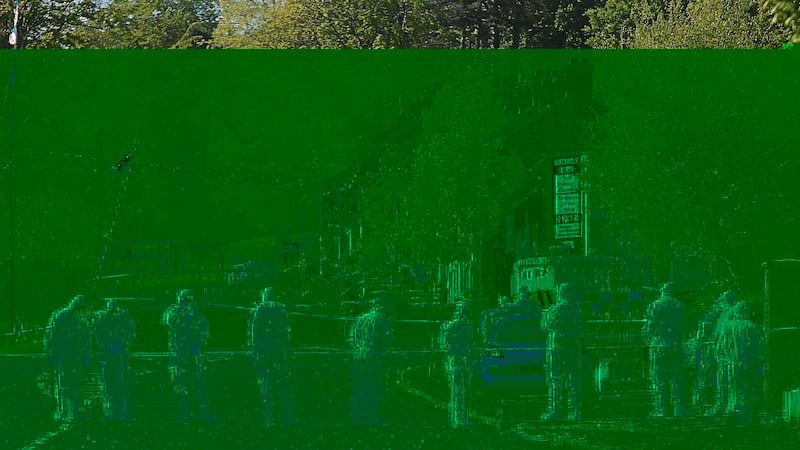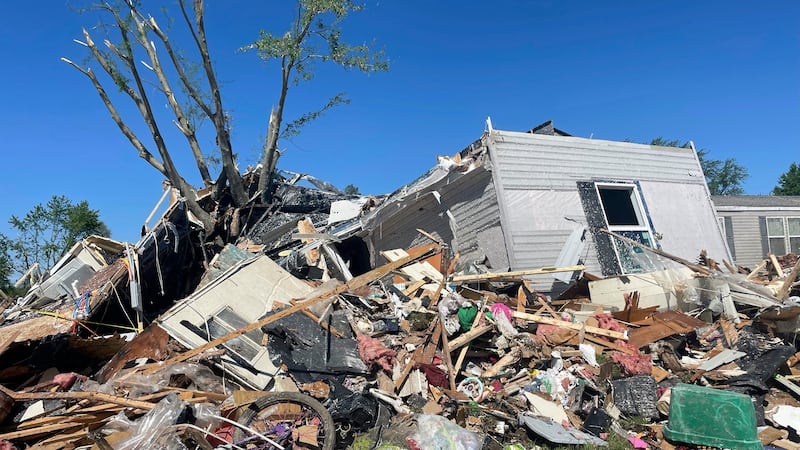DUBLIN solicitor has revealed how he turned his back on his middle-class Dublin lifestyle to rob banks and make bombs for the IRA at the height of the Troubles.
Kieran Conway has provided a rare insight into the republican movement in his new book South-side Provisional: From Freedom Fighter to the Four Courts.
Conway, pictured, who served time in Long Kesh for weapons possession, yesterday hit out at those who led republicans towards the peace process and the 1998 Good Friday Agreement.
"The IRA has disappeared into history having taken a position on how to achieve Irish unity which is identical to that of the British government it fought against for 25 years and that is not a good outcome," he said.
Speaking to RTE's Sean O'Rourke radio show, Mr Conway described how he had attended the privileged Blackrock College and studied law at University College Dublin for two years.
When he started at UCD in 1968 "things were hotting up" in Northern Ireland, so he joined the college's republican club, but was not taken seriously when he attempted to join the Official IRA.
"I was told my efforts to join were indications of my immature adventurism and that the IRA was not for the likes of middle-class lads like me. They wanted us to get our degrees and we would be
assisted to get jobs in the media, trade unions and the public service," he said.
Undeterred, he dropped out of college in 1970 after failing his second year law exams and went to Belfast to attempt to join the IRA again.
It was during rioting sparked by the killing of 19-year-old Catholic Daniel O'Hagan by British soldiers on the New Lodge Road in the north of the city that the ex-student made Provisional contacts.
He was initially sent to Dublin and then to London where he received "very elementary training" in firearms and explosives. He would later learn to make bombs back in Ireland.
Mr Conway yesterday refused to comment on how many people he had killed because "there is still a risk of prosecution", adding that the authorities in Northern Ireland, rather than the Republic, remained interested in "historic prosecutions".
"I have no doubt that actions of mine resulted in serious harm to people and worse, and I regret that. I very much regret it in view of the outcome," he said
He admitted taking part in fundraising activities for the IRA, including bank robberies in London, raising a "reasonable amount" before returning to Ireland.
During the summer of 1971 he was sent to the north-west border region before transferring to Derry where life was easier away from nights spent in farmers' outhouses and tramping across rough terrain.
Those he admired within the republican movement included IRA leader David O'Connell whom he "thought very highly of," though he disputed the belief the Cork man had invented the car bomb.
He described IRA chief of staff Sean MacSiofain as a "curious figure" while the then Sinn Féin president Ruairi O Bradaigh, who he said also had a role in the IRA, was "very easy to get on with and very friendly."
Deputy First Minister Martin McGuinness was then the IRA's number two in Derry, but Mr Conway said: "It was pretty clear to me that Martin was the man in charge and everybody looked up to him, adults as well as young IRA volunteers. He was a very, very impressive individual."
He left the IRA and returned to college in 1975 after several senior figures, including O'Connell, were arrested and the focus of the IRA's activities appeared to change.
"The IRA had got involved with tit-for-tat killings with loyalists which was absolutely contrary to republican policy and was also politically stupid because it gave the British the opportunity to portray the whole thing as a sectarian clash between Protestants and Catholics," Mr Conway said.
He quit after rowing with chief of staff Seamus Twomey over Mr Conway's failed efforts to disarm renegades Eddie Gallagher and Marion Coyle, who would go on to kidnap businessman Tiede Herrema days later in Limerick.
"I told him to stick his job,'" the solicitor said.
He rejoined during the 1981 hunger strikes as a "dual member" of Sinn Féin and the IRA.
Asked about the relationship between Sinn Féin and the IRA at the time, Mr Conway said: "It's very simple - IRA people are either by desire or instructed to go into Sinn Féin. That's what I did."
He left again in 1993 on the day the Downing Street Declaration was signed and said he disagreed with the Good Friday Agreement, describing it as "not the outcome people died for and killed people for".
"The outcome is a disappointment to me," he said, but added that after two decades his "bitterness has abated somewhat".


